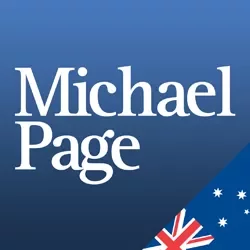How to lead a team from any level



When it comes to learning managerial skills and understanding how to lead a team effectively, you don’t have to wait around for that big promotion to start gaining new insights. From wherever you are positioned within your company or organisation, it’s possible to grow your leadership skills, and become a respected and valued authority. There are a few things to bear in mind as you embark on your managerial journey.
Here's how to lead a team effectively:
Perhaps this is blindingly obvious but taking responsibility is crucial if you are hoping to lead. Acknowledging successes and failures, and shouldering the weight of decisions, is what separates the average employee from a leader. Every action has a consequence – positive or negative – and those who are ready to handle those consequences and face them with integrity are the ones who will advance.
Again, this is ‘How to lead a team 101’. Leading a team isn’t about stepping on heads to raise yourself higher, it’s about providing the encouragement, support and praise to lift others around you. By lifting the spirits of others around you, you will nurture a happy, healthy working environment, and such an environment is the best to bring positive results.
How many times have you started a new task, only to find that you are filled with frustration at missed opportunities and long-winded or wasteful processes? If something isn’t working as well as it could, speak up – with tact! Ultimately, what you will achieve is the impression of yourself as a capable team member with a strong, goal-orientated vision.
One of the key aspects of learning how to lead effective meetings is understanding it isn’t simply about making yourself heard. Often, in fact, demanding that people listen to you is a surefire way to making sure they don’t. Rather than dominating meetings, allow others to speak and contribute when you have something of genuine value. Endless talking without saying anything new or productive will make you appear egocentric and lacking insight.
Nobody will tout you as a leader if you are late every day, miss deadlines, work sloppily and shoot way over budget. Having charisma is great but to advance in your career you must show outward enthusiasm and productivity to boot. Learn how to lead by example and also set a strong image of what successful work looks like for your team.
This is best exercised with caution, of course, but the fact is leaders and innovators are not known for their blind compliance and agreement. If the time calls for it and your gut is telling you something is wrong, have the courage to disagree. Saying yes to everything that is asked of you – such as ‘Can you stay late again tonight?’ and ‘Are you coming for after-work beers?’ – can make you appear lacking in resolve.
Empathy is the increasingly rare ability to mentally put oneself in someone else’s position and feel what they are feeling in that moment. Repeatedly misunderstanding and misinterpreting people’s aims, fears or aspirations will dig a hole that is difficult to climb out of. However, if you are empathetic to your team and colleagues, you will develop strong working relationships and build trust and respect and, from that, success.
If you are an employer and would like to discuss your hiring needs, fill in the form below and we will call you back.
